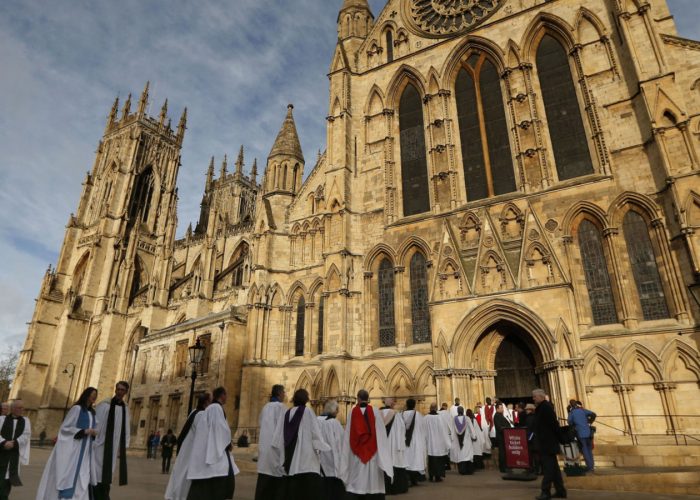



The Church of England’s assets are managed by the Church Commissioners
A return of 17,1 percent in a single year is something of which most fund managers would be proud.
Yet that was the achievement last year of the Church Commissioners for England, the body that manages the Church of England’s near £8bn worth of assets, which in 2016 enjoyed its best investment performance in three decades.
It enabled the Commissioners to make disbursements of £230.7m, representing around 15% of the Church’s costs, helping pay the salaries and pensions of serving and retired clergy, provide funds to support Church missions and meet the cost of cathedrals and other Church buildings.
The vast majority of the Church’s mission and ministry costs are met by contributions from parishioners.
But is the performance really as good as is being suggested? Not necessarily.
Some will argue that a 17.1% improvement last year does not represent that great a return, given that the pound collapsed following the vote to leave the EU, which automatically flatters investment returns achieved in non-sterling assets when translated back into pounds.
The MSCI World Index, a broad global equity benchmark measuring performance of shares in large and mid-cap companies across 23 developed markets and covering 85% of the market capitalisation of those countries, returned 25.62% during 2016 in sterling terms.
That knocks the Church Commissioners performance into a cocked hat, or a cocked mitre, if you prefer.
The long-term performance, though, should be enough to allay such criticism.
The Church Commissioners have achieved an average return of 9.6% per year during the last three decades.
During that period, taking into account inflation, few major stock markets have provided a return like that.
Accounting for the reinvestment of dividends, the Dow Jones Industrial Average would have returned just 7.9% during the period, while the S&P 500 just 7.0%.
So one can argue that the Church Commissioners have done well during the longer term and particularly so given that they avoid investing in companies involved with tobacco, alcohol and the arms trade, many of which have been stellar performers during the period.
For example Neil Woodford, one of the UK’s most celebrated and successful fund managers, has invested significantly down the years in companies such as BAE Systems, Britain’s leading defence contractor and Imperial Brands, the UK’s leading tobacco company.
Nor did the Commissioners invest heavily in bonds, despite a 30-year bull market in that particular asset, leaving them ground to make up elsewhere.
Making that longer-term performance all the more impressive is that, at the beginning of the period, the Commissioners had got themselves into a pickle by borrowing heavily to invest in commercial property during the late 1980s.
This left them nursing losses, that have been put at more than £800m, when the sector crashed during the recession of mid-1990 to late 1991.
A horrified George Carey, the Archbishop of Canterbury at the time, ordered an inquiry by the accountancy firm Coopers and Lybrand (now part of PwC) which revealed that, incredibly, property accounted for 60% of the Church Commissioners assets in 1990.
Those responsible for the losses were booted out, while changes were made to the powers of the Commissioners, who subsequently lost responsibility for spending the money they raise.
By no means was that the only investment setback that the Commissioners have suffered during the last 30 years.
The bursting of the dot-com bubble and the subsequent lacklustre stock market performance – the FTSE-100 fell in each of 2000, 2001 and 2002 – cost the Church Commissioners an estimated £500m, obliging the Church to sell other assets, including some works of art.
Yet even in these dark times, the Commissioners arguably outperformed.
Their return of -9.9% in 2002, for example, beat the -13.9% average achieved that year by UK pension funds, ironically because some 40% of the portfolio was still invested in property, which softened the impact of the stock market slump.
So, while the short-term investment performance achieved by the Church Commissioners in 2016 was undoubtedly flattered by the weak pound, the long-term 30-year performance is truly astonishing given the various pitfalls they have experienced.
And it is also a tribute to the kind of patient long-term investment, in assets such as forestry and agricultural land, in which they have specialised in recent times. –news.sky.com